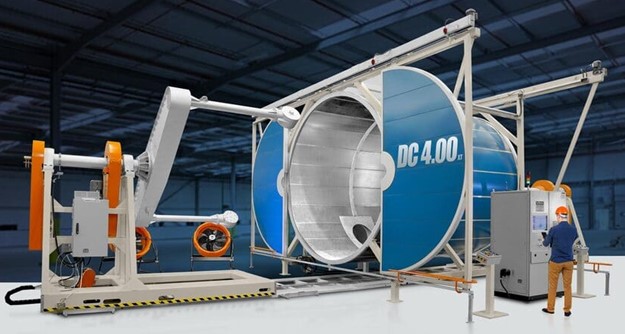Exploring the Advantages of Rotomolding for Industrial Use
Exploring the Advantages of Rotomolding for Industrial Use
Blog Article
Rotational molding, also known in the industry as Rotational Molding has revolutionized the ways that industries produce strong and reliable plastic products. From durable water tanks to intricately designed custom components Rotomolding has proved itself as a preferred manufacturing method for versatility and quality. But what exactly can it do to make it so effective? Let's take a review of the process as well as its advantages and its effect across different industries.

The Rotomolding Process
Rotomolding is an easy but highly precise process. Then, the powdered resin is poured in a mold. The mold that is closed is turned around two perpendicular axes inside an oven. Its heat instantly melts plastic powder, ensuring an even distribution over the mold's surfaces. When the product is formed, it is cooled, solidified, then is removed from mold, ready for practical use.
This technique allows for unmatched design flexibility, enabling manufacturers to make products that have complicated designs with uniform wall thicknesses and high levels of durability. It's particularly useful when it comes to large hollow structures that might not be feasible using other manufacturing techniques.
Why Rotomolding is a Game-Changer
Rotomolding stands out due to several important reasons:
Durability Products produced by Rotomolding are extremely durable and can withstand tough environmental conditions, making the perfect outdoor and industrial use.
Cost-Effectiveness The molds that are used for rotational molding are relatively inexpensive when compared to injection or blow molding and are therefore a good budget option for large as well as tiny production batches.
Customization The ability to produce intricate designs and varied sizes means that the products can be customized to the individual needs of customers.
Low waste Rotomolding is innately efficient, utilizing materials to its maximum extent and with the least amount of waste, and promoting sustainable production practices.
Applications Across Industries
Rotomolding forms the basis of many industries, assisting in the manufacturing of storage tanks, outdoor furniture playground equipment, automotive parts, and even marine products like kayaks. Its versatility and adaptability to various substances, including UV-stabilized resins, make it a preferred choice for durable products exposed to varying conditions.

Its combination of precision, durability, and cost-efficiency, the rotomolding process continues to be a key element in modern manufacturing. It's not a surprise that this technique is recognized as a sustainable and reliable technique that will shape the future of durable plastic products.
Report this page